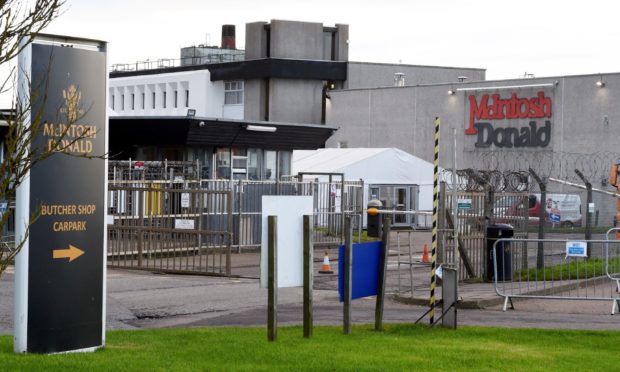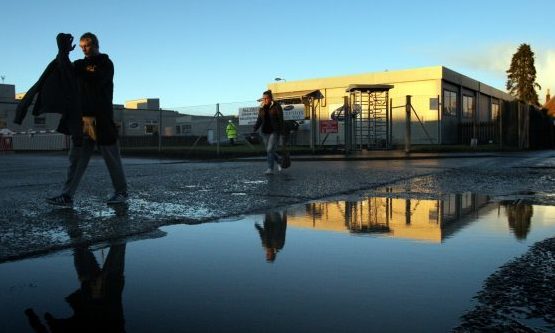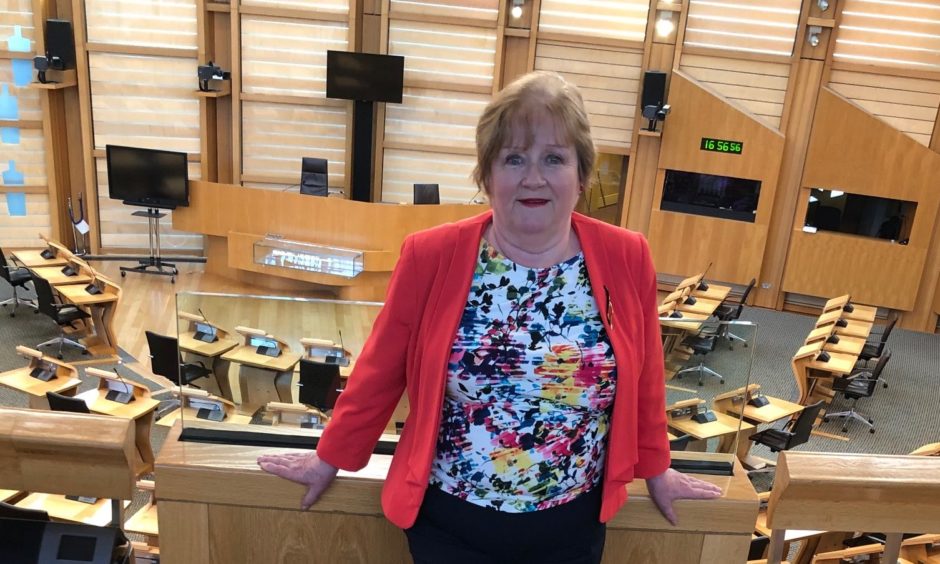Aberdeenshire will not immediately be placed into further restrictive measures despite 78 new coronavirus cases being recorded in less than a day, the first minister has said.
Her comments come after an outbreak was identified at the Kepak McIntosh Donald plant in Aberdeenshire and raised at first minister’s questions on Thursday afternoon.
A number of other food plants, including the 2 Sisters chicken factory in Coupar Angus, Perthshire, and several meat plants in England reported major infection numbers.
As many as 78 positive coronavirus patients have been identified at the Portlethen meat plant, with NHS Grampian having established an incident management team at the site.
Cold temperatures and close working conditions could explain why food processing plants across Scotland appear to be Covid hotspots, she added.
Despite these cases, in Perthshire in the summer and Aberdeenshire now, no further restrictions or measures are being put in place, with Aberdeenshire remaining in level two.
It means even though Aberdeenshire has seen a rise in the number of coronavirus cases that could warrant a tier increase, because the increase can be traced fully, it is not immediately necessary to do so.
Although we have seen a rise in cases in Aberdeen and Aberdeenshire, we can take some assurance from the fact much of that rise can be attributed to outbreaks such as this one, rather than being indicative of more widespread increases in community transmission.”
First Minister Nicola Sturgeon
How it is being contained
Maureen Watt, the SNP MSP for Aberdeen South and North Kincardine, raised the issue with Ms Sturgeon at Holyrood.
She asked what measures were being utilised by the Scottish Government to contain outbreaks in plants like the one in her constituency.
By testing staff at the plant and making sure isolation and social distancing protocols are followed, the chances of wider community spread is lessened, Ms Sturgeon said.
“We have known throughout the pandemic — even before we had experience of it in Scotland — that food processing plants pose some particular risks.
“There are various reasons for that, which include the very low temperatures in some plants and some of the other working conditions. As that understanding has developed, so too has the response from public health experts.
“A lot of work has been done to make sure that the right precautions are taken in food processing plants and that where there are cases those are identified quickly and the right steps are taken.
“That includes testing the wider workforce to minimise spread within workplaces and, most important, to minimise the risk of an outbreak in a plant such as Kepak moving into wider community transmission.
“That is an important focus for the public health teams in Grampian.”
A rise in coronavirus cases…
She added: “Without taking away from the seriousness of the situation, I can perhaps say one more positive thing about this.
“Although we have seen a rise in cases in Aberdeen and Aberdeenshire — I have commented on that in the chamber in the past couple of weeks — we can take some assurance from the fact that much of that rise can be attributed to outbreaks such as this one, rather than being indicative of more widespread increases in community transmission.
“We continue to monitor that carefully, but it is one of the reasons why, notwithstanding those increases, we have not felt it necessary to move Aberdeen or Aberdeenshire up a level.”



